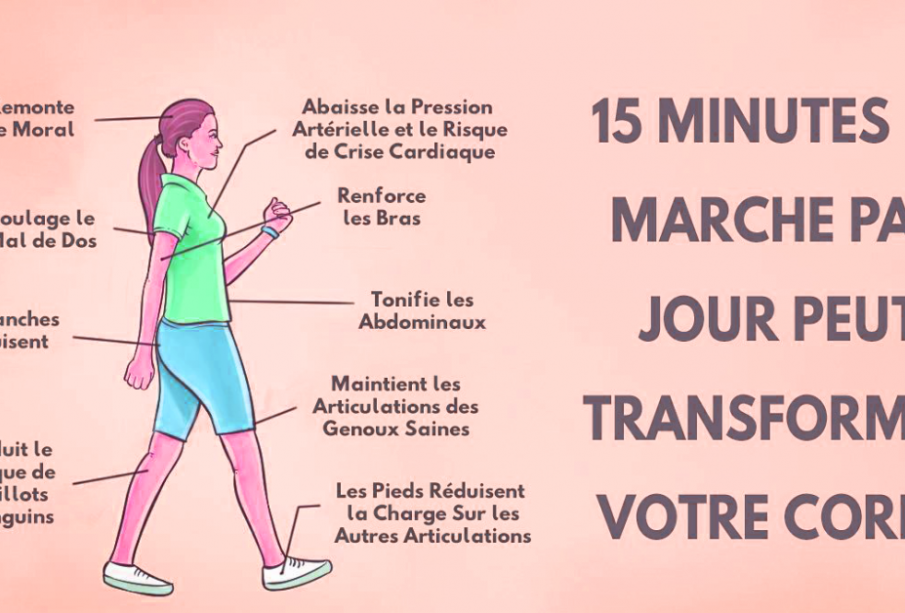Walking: Health benefits

A study published in the Journal of the American College of Cardiology showed that walking 30 minutes a day can reduce the risk of heart attack by 19%.
“Since I started walking 30 minutes every morning, I feel more energetic and my blood pressure is much more stable.” This testimonial is given by Anissa Ebale, a 45-year-old teacher. For her, walking is now an essential activity to preserve her mental, physical and psychological health. Like Anissa Ebale, many other people are captivated by the practice of this sporting activity. Indeed, walking is one of the oldest and most accessible physical activities. It stimulates the heart and lungs. It helps reduce the risk of cardiovascular disease by lowering blood pressure, improving cholesterol levels and increasing cardiac capacity. Often underestimated in terms of health benefits, it offers a multitude of physical, mental and social benefits. Sophie N., a 62-year-old retiree, explains: “I walk every day in the park near my home. I feel stronger and more stable, and my joint pain has diminished.” For his part, Jean, 70, says: “I suffered a lot from my knee, but since I started walking regularly, I feel much better.”
Combined with a balanced diet, walking can contribute to weight loss and obesity prevention. Thomas, a 38-year-old engineer, shares his experience: “I lost 10 kilos by walking regularly. It’s amazing how a simple activity can have such an impact on weight.” In addition, walking is a low-impact activity that helps strengthen bones and muscles. It stimulates the production of new bone and reduces the risk of osteoporosis. It tones the muscles of the legs, glutes and core, improving posture and stability. Walking regulates joint flexibility while reducing age-related mobility problems. It is particularly beneficial for people with arthritis, as it helps reduce pain and inflammation. In addition, walking has a calming effect on the mind. It releases endorphins, hormones that promote well-being and reduces stress. Walking stimulates the brain and improves concentration. It also promotes creativity, which is why many famous thinkers and artists, such as Steve Jobs, adopted walking as a regular practice. A study published in the Journal of Experimental Psychology found that walking can increase productivity and cognitive efficiency. Paul, a 35-year-old social media content creator, explains, “I get my best ideas when I walk.”
Also read: Garlic: A natural remedy with multiple virtues
In addition to the benefits mentioned above, regular walking can improve sleep quality. It helps regulate the circadian rhythm and reduce insomnia. A study from the University of Georgia showed that people who walk regularly have more restful sleep and a better quality of life. Elise, a 40-year-old nurse, testifies: “Since I started walking every night, I sleep better and wake up refreshed.”
Socially, walking offers the opportunity to discover new places, enjoy nature, and connect with one’s environment. This can improve one’s sense of well-being and life satisfaction. Luc, 42, explains: “Every walk is a new adventure. I’ve discovered beautiful places close to home and I’ve improved my creativity.” In short, walking is a simple but powerful activity that offers a multitude of health benefits.
Junior NTEPPE KASSI














